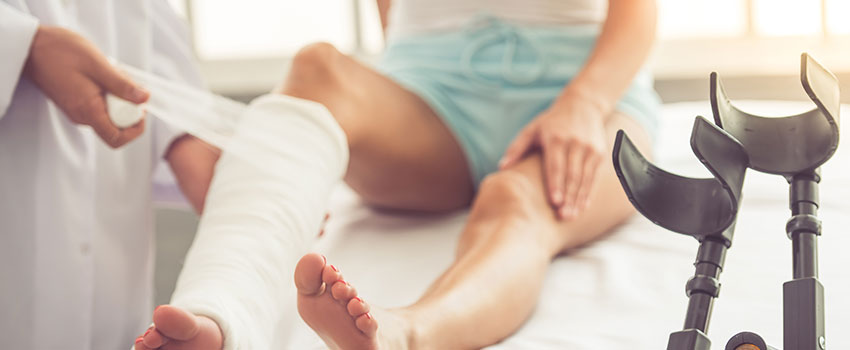
When many think of fracturing a bone, they think of something gruesome, like a complete break with the bone sticking out of the skin. While, yes, this is a type of fracture, fractures can also be much less severe—hard to detect, even.
Our AFC Urgent Care Knoxville team provides other helpful info about fractures below, so keep reading to learn more!
What Is a Fracture?
Did you know? Fractures are very common, and the average person will have two during his or her life. A fracture is the medical term for a broken bone.
Fractures are more common among adults than children, because bones weaken with age. There are many different types of fractures, but we’ve listed the four main categories below.
Main Categories of Fractures
- Displaced: The bone snaps into two or more parts and moves so that the two ends are not lined up straight.
- Non-displaced: The bone cracks either partially or completely, but it doesn’t move and maintains its proper alignment.
- Closed: When the bone breaks, but there is no puncture or open wound in the skin.
- Open: The bone breaks through the skin, but then can recede back into the wound.
What About Stress Fractures?
You may have heard of a stress fracture before. This is a type of fracture that would fall under the category of a non-displaced fracture, as it is a small break of the bone that remains aligned.
Stress fractures can get worse, though, as repeated activity and a failure to treat the fracture can result in a complete break of the bone. If you have either been diagnosed with a stress fracture or suspect that you have one, we’ve listed some things to keep in mind below.
Ways to Treat a Stress Fracture
- Rest. Stay off the affected limb until you are cleared to bear normal weight by your doctor.
- Ice. To reduce swelling and relieve pain, your doctor or medical professional will likely encourage you to apply ice packs to the injured area as needed.
- Resume activity slowly. When your doctor or medical professional gives the OK, slowly progress from non-weight-bearing activities like swimming or stretching to your usual activities. Activities like running or sports should be taken slowly.
Not sure what to do next if you’ve fractured a bone? Our AFC Urgent Care Knoxville team can help—visit us today!


